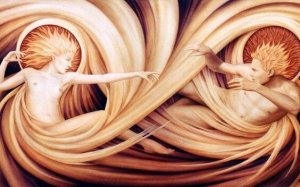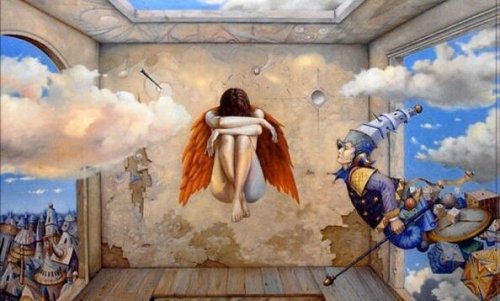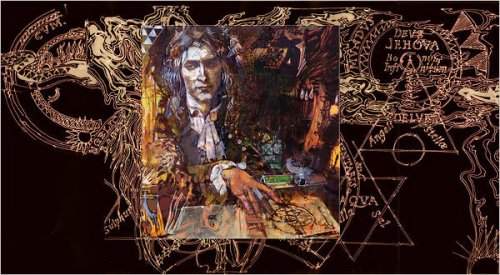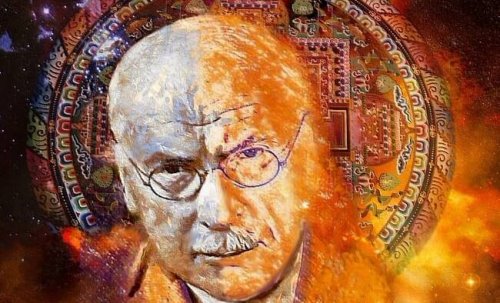Carl Jung: Psychology and Alchemy


Written and verified by the psychologist Valeria Sabater
The book Psychology and Alchemy by Carl Jung left behind a legacy that’s as fascinating as it is controversial. For this Swiss psychiatrist, one of the purposes of every human being is to become free and to nurture their individuality. However, to do so, one had to decode each symbol of the subconscious.
The subject isn’t easy to assimilate at first. However, many of the theories and approaches bequeathed to humanity by Carl Jung are small challenges we should study. They allow us to open up our minds, try more flexible approaches, and enrich ourselves a little more.
Thus, anyone who reads Jung’s Psychology and Alchemy for the first time published will most likely be confused. His ideas are rather daring. However, if there’s something that defined Carl Jung from the beginning, it was his approach to the scattered and mysterious life that transcends the psyche itself.
Psychology and Alchemy
Psychology and Alchemy is, above all, a proposal for transformation, where the most decisive factor is your intentionality and creativity. This is because it’ll allow you to open up your own alchemical routes.

“People will do anything, no matter how absurd, in order to avoid facing their own Soul. One doesn’t become enlightened by imagining figures of light, but by making the darkness conscious.”
-Carl Jung-
You may think that alchemy is a proto-scientific practice, something between the mystical, spiritual, and philosophical realms rooted in Hermes Trismegistus, a Greek-Egyptian deity. Perhaps you’re also thinking of the purpose alchemy had in the past: to find eternal youth or the power to transform any material into gold.
Jung’s Alchemy
In contrast, when referring to Carl Jung’s concept of philosophy and alchemy, one can say that his thesis has nothing in common with that ancient branch of science. In this modern take on alchemy, there’s a sense of advancement, of personal evolution. Thus, if you delve a little deeper into his book Psychology and Alchemy, you’ll discover the author’s interest in reviving the concept of alchemy.
For Jung, self-knowledge begins with the ability to understand not only the psyche but also each way in which the unconscious manifests. For example, analyzing your dreams can help you understand yourself better. Isaac Newton is a good example of this quest of self-realization.
Isaac Newton: An Example of the Concept of Psychology and Alchemy
This mathematician did more than just develop differential calculus, discover the spectral properties of light, enunciate the theory of universal gravitation, and formulate the first calculations of the Earth’s attraction to the Moon.
The world entered the “Age of Reason”, where everything must be backed by science, thanks to him. In his notes and private diaries, you can see that he studied alchemy. Moreover, as several articles revealed, it was his true passion.
Jung said that alchemy was also an art form and, as such, it’s still a science that elevates knowledge. On this note, Newton was able to open up to a different type of knowledge. The kind where spirituality, astronomy, symbolism, and mysticism could help him shape a more evolved psyche.

Jung’s Ideas
In fact, in order to achieve it, one must understand Carl Jung’s ideas:
- Alchemy is a personal journey of transformation and an instinctive impulse for growth.
- People with an inflexible mind and a consciousness that focuses merely on objectives, material things, and the observable will have a limited life.
- In order to favor a broader and higher consciousness like Isaac Newton’s, we must develop, according to Carl Jung, the following four alchemical elements: Fire (feeling, choleric), Water (thinking, phlegmatic), Air (intuition, sanguine), and Earth (melancholic, sensation).
- Also, psychology and alchemy arise from many of your unresolved psychic elements. You must delve deep into that alchemical darkness where your shadows meet in order to bring them back to light. Every transformation requires effort, open-mindedness, and creativity.
There are two kinds of alchemy. One strives to get to know the cosmos as a whole and recreate it. It’s the precursor of modern natural science. The other alchemy focuses on the possibility of a transformation that will lead you to be your true self.
Psychology and Alchemy to Understand the Human Soul
Psychology and Alchemy is volume 12 of the complete works of Carl Jung. Jung wrote it toward the end of World War II and amidst a crisis of values. During this time, Jung really didn’t trust humans.
The book seeks to reach the deepest essence of human beings, even that part of our soul that can be rescued through an alchemical process. This trip, similar to Dante’s Inferno, begins at the deepest, darkest parts of your soul. Then, you come into the light little by little:
- First, drop your social mask.
- Then, work on your darkness, that state of putrefaction or decomposition where your shadows live. Those are the dark parts of yourself that you refuse to let out.
- Understand the opposites of your personality (your malice and your goodness, for example).
- Differentiate your female side from its male counterpart, as well as those archetypes that underlie your being (The Hero, The Father, The Sage, etc.)
- Decipher the meaning of your dreams.

Conclusion
To conclude, Psychology and Alchemy is a direct invitation to go beyond orthodox and empirical science. It was another of Carl Jung’s attempts to incite us to cross the threshold of the most ordinary knowledge in order to reach the extraordinary.
Today, in the garden of what used to be his country house, Bollingen Tower, there’s a large stone that has a series of alchemical symbols that he wrote himself. These symbols manifested to him in a dream and his interpretation of them is: “This is a sign for you to remember that you’re a unit and that you’re also everything in this world”.
This text is provided for informational purposes only and does not replace consultation with a professional. If in doubt, consult your specialist.








